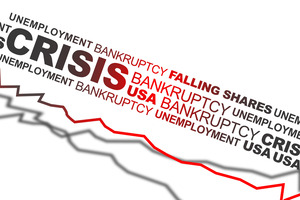Transcription:
[inaudible]Hi. My name is attorney Robert Geller of law offices of Robert M Geller, PA. And we are a consumer bankruptcy law firm. And today we are going to talk to you about what the different types of bankruptcy are. Generally, there are, um, four or five different types of bankruptcy that is filed. One is a chapter seven bankruptcy, and that is what most individuals or consumers normally file.
There is chapter nine, bankruptcy which is a municipal bankruptcy. Some of you heard about Detroit filing bankruptcy. There is a chapter 11 bankruptcy. That is what most corporations or individuals, uh, file. Generally, if it’s an individual, it’s a individual has a lot of income and a lot of assets. And then there’s chapter 12, which is the former bankruptcy. So people who are in the farm industry or, uh, people who farm animals or farm fish, that would be a type of bankruptcy that they would file.
And the final form of bankruptcy is a chapter 13, bankruptcy chapter 13, bankruptcy is like a chapter 11 bankruptcy. It’s also a reorganization except a chapter 13. Bankruptcy is only for an individual. So let me talk a little bit more in detail. Our law firm is mostly a consumer bankruptcy law firm. So generally we only filed chapter seven and chapter 13 bankruptcy. So let’s talk about chapters set. A chapter seven.
Bankruptcy is probably what most people or individuals think of when they come into our office and want to file a bankruptcy. The way generally a chapter seven is or works is it’s a three month bankruptcy, which means basically in three months you get a bankruptcy discharge. Um, generally it will get rid of most of your debt. It does not get rid of some debt, um, like income, certain income taxes. It does not get rid of alimony.
We generally like our clients to file chapter seven bankruptcy because it’s the fastest path to get back to rebuilding your credit. Then most chapter seven bankruptcy is most people are able to keep, uh, their assets, their home. It’s only secured debt that they don’t pay for. Like if they’re not paying their mortgage, that they wouldn’t be able to keep it, or if they’re not paying their security car loan, that they would be able to keep it. But the good thing again, about filing chapter seven, bankruptcy is you get your discharge in a period of three months. The next type of bankruptcy that we file is a chapter 13. I’d say in our firm, we file somewhere of all the cases we file. We file about 20 or 30% chapter thirteens. And about 70, 80% of our cases are chapter seven.
So what does a chapter 13 do? Why does somebody file a chapter 13 bankruptcy? The main reason people file chapter 13 bankruptcy is because they’re trying to save their home. They’re behind on their mortgage payments and they come in our office and don’t even know what they can do. So we would recommend a chapter 13 bankruptcy for them. What a chapter 13 bankruptcy allows them to do is to catch up whatever they’re behind. Let’s say they’re behind $6,000. It gives them up to five years to catch up on their mortgage. And, um, or also we help them keep their home by filing a chapter 13 bankruptcy through a mortgage modification process. We try and re modify or modify the mortgage.
A couple other reasons we would file a chapter 13. Bankruptcy is some people are not eligible to file checks seven. They make too much money or they have too much in assets, or they may have filed a chapter seven bankruptcy too recently and not be eligible to file a chapter seven. So chapter 13, bankruptcy is also called the wager and bankruptcy and, um, it’s, um, basically a payment plan over a period of three to five years. Um, if you have any questions, uh, please call us. Um, and we’d be glad to help you with that. And I look forward to helping you build a bridge to a brighter future through bankruptcy. Thank you.



























![Signs That You May Need to File Bankruptcy [Infographic]](https://djml3wkzi26ea.cloudfront.net/wp-content/uploads/2021/01/signs-chap7-v-chap13.jpg)
![How To File for Bankruptcy [Infographic]](https://djml3wkzi26ea.cloudfront.net/wp-content/uploads/2020/07/bankruptcy-steps-infographic-web.jpg)










